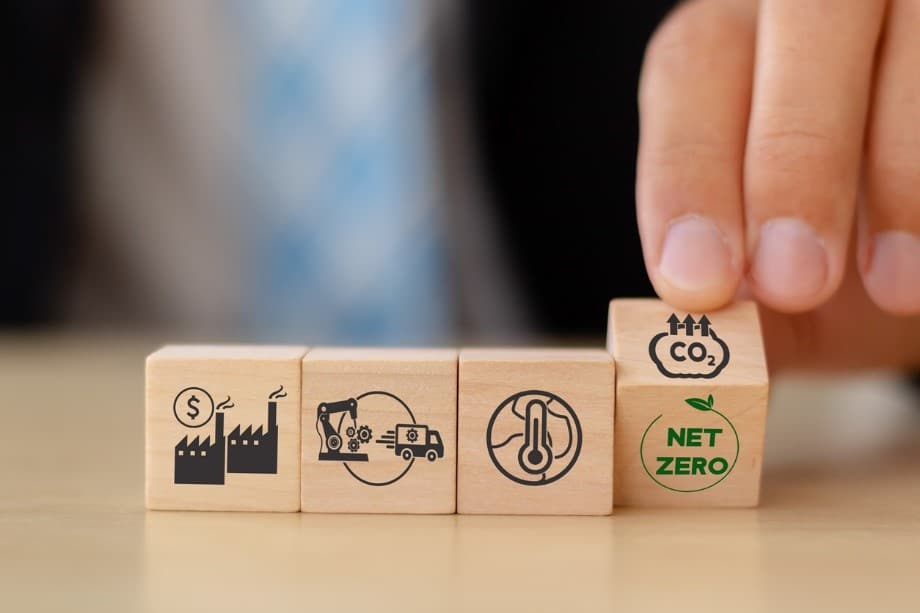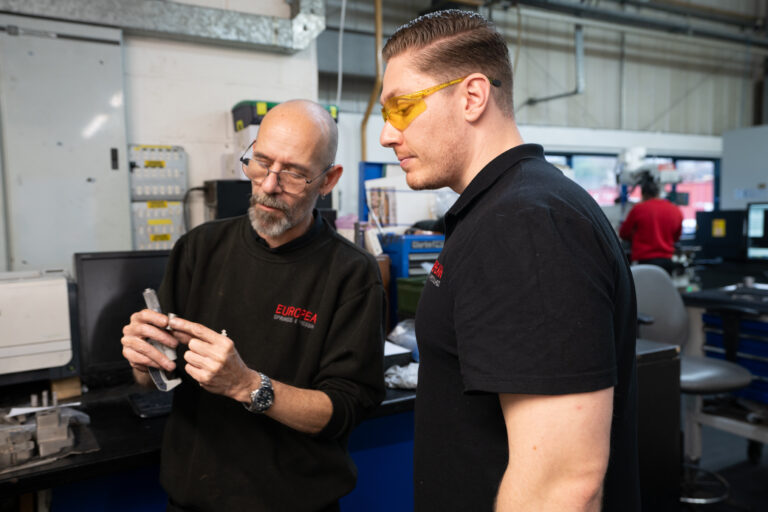The whole manufacturing industry has embraced reaching net zero and becoming more sustainable. This is no small feat, as the industry is responsible for an estimated 20% of UK emissions.
European Springs is committed to supporting a more sustainable and ecological industry, developing strategies to ensure future generations have a greener future. We’ve collected some ways the spring manufacturing industry can help companies reach their net-zero goals.

1. Sustainable Materials
One of the most critical ways spring manufacturers can help other companies reach their net zero goals is using sustainable materials. Sustainable materials, such as recycled steel and other metals, reduce the energy consumption required to make a product by up to 40%. Options such as these help minimise a company’s carbon footprint and are much more environmentally friendly. It will also reduce the need for mining, depleting an already limited source of metals and destroying the habitats of animals and wildlife.
Another example of a sustainable manufacturing process is the closed-looped industry. It is an optimised process that minimises the negative environmental impacts and conserves energy and natural resources. It also enhances employee, community and product safety.

2. Energy-Efficient Processes
Energy efficiency is the name of the game when it comes to reaching net-zero goals. Due to the increasing knowledge of the industry’s environmental impact, the focus has shifted to creating more energy-efficient processes. The benefits of energy-efficient processes include lowering greenhouse gas emissions and other pollutants and decreasing water usage.
Additionally, manufacturers are intensive energy users that can gain significant savings by decarbonisation. Switching to low-carbon technologies, such as solar panels and biomass systems, supports both the net zero strategy but can also support the financial optimisation of a business. Renewable energy, such as solar or wind power, can help eliminate additional toxins and gases expelled into the environment. Toxins like these can harm vegetation and life, causing health implications and adding to the greenhouse gases. By reducing your facility’s output, you can assist in maintaining a healthier environment for future generations and create more energy-efficient processes.
3. Lifecycle Analysis
In the manufacturing industry, a product’s lifecycle needs to be analysed. A life cycle analysis measures the environmental impact of a product or service throughout its life cycle, from the resources used to create the product or service across its use by the user to its end-of-life destination. Analysing a product’s life cycle helps us compare products, materials, and methods used, providing helpful information to make decisions that could help the environment. It is a standardised method to assess environmental impacts quantitatively.

The lifecycle assessment can be used for different products by different people. But it is all about the environmental impact and performance. What can you discover by using the lifecycle analysis?
- Design. What changes can you make to the product to lessen its environmental impact?
- Purchasing. Which product has the most negligible ecological implications?
- Marketing. Is this product ‘greener’ than a competitor?
- Benchmarking. How’s our company doing next to all the others in our industry?
- Tracking. How’s our environmental performance this year compared to last year?
- Policy. What initiatives will help improve overall ecological outcomes?
4. Innovative Technology Which Reduces Waste
Reducing the amount of waste a product produces is an innovative way to help the environment. As a UK spring manufacturer, we know that one of the most successful ways that improvements can be made in your company includes the waste hierarchy in your work process. While not a piece of technology, the waste hierarchy can be used as a stepping stone for your company to manage the waste it produces effectively. These steps are:
- Prevention. Preventing materials from becoming waste means preventing any problems pre-emptively.
- Reuse or recycle. Reusing applies to refurbishing and repairing objects to extend their life. Recycling waste materials focuses on ensuring that any materials designated for waste are recycled for new uses.
- Recovery. Recovery is the process of incinerating waste materials to regain some of the lost energy used in the collection. Often, these materials are burned to produce electricity and, in turn, reduce the number of fossil fuels burnt.
- Disposal. The lowest step in the hierarchy and arguably the worst option environmentally. This choice means that all of the waste produced from manufacturing will end up in a landfill site.
Additionally, many manufacturers invest in innovative technology, such as air source heat pumps, for their building heating and cooling needs. These new alternatives to conventional systems are significantly more environmentally friendly. By choosing these alternatives, manufacturers can open more possibilities for using green electricity tariffs, which many energy suppliers offer.

5. Collaboration With Sustainable Companies and Initiatives
The future of the manufacturing industry is green. As the UK’s 2050 deadline for net zero approaches, it is essential that companies and eco-initiatives can collaborate and are committed to sustainable strategies. In many ways, we can only reach this net zero goal by working together to achieve it.
The net zero strategy’s overall essence is to balance the carbon emissions produced and the carbon removed from the atmosphere. This balance makes it net zero. It will benefit the environment, society, economy, and your business individually. By promoting a collaborative environment, you are driving and enabling sustainable practices.
Some examples of current and ongoing ecological initiatives that you could use:
- Using circular manufacturing to save energy and reduce waste
- Implement safety measures by utilising automation tools
- Digitise internal communication
European Springs is a leading manufacturer of custom springs in the UK. We are constantly working to improve our high-quality spring manufacturing process so that they continue to have a minimal environmental impact. Contact us to discuss our working methods or any bespoke spring designs you need for your next application.







